.
UBC Insiders Analysis
Click here to skip to profiles of the candidates in this race.
Note: Alex was a student 2008-2009 senator.
The Senate represents one of the places where students can influence the most change over the lives of every student. The highest governing academic body on campus, the Senate drafts the academic calendar, is the final body of appeals on academic issues, and is consulted on all issues pertaining to the academic side of the house, such as the University’s budget and academic building use.
Why the most important basis for the job is showing up, after the jump
UBC is a highly federal structure. While there may be a global Senate, it is composed mostly of faculty members, and much, much authority is assigned to the individual departments. Rarely does original policy come from the Senate. When it does however, it is typically met with a high degree of resistance, as the Senate is culturally viewed as a dormant body with limited powers.
An example of this resistance is exemplified by the student evaluations of teaching policy, passed by the Senate in 2007. Almost immediately thereafter, UBC was before the courts, with the Faculty Association claiming this policy was opposed to their collective agreement with the UBC Board.
A good student senator will be active. Active means a student that is at meetings, speaks at meetings, and will pro-actively bring up issues with the Senate. This is surprisingly hard to find, as there are over 15 student senators. Most are busy with other affairs, and such generally easy-to-win elections leads to apathetic representatives. Because of this, the five being elected before you are most likely to be the most energetic, and the leaders of the student caucus.
The past couple of years however we have seen an uprising in the energy amongst the student senators. The current Senate vice-chair is a student, which was viewed as a resounding expression of support of the work students have been doing for the university. Well, that said, the other candidate for the position was an alumni senator that had less experience with the body than the student, but I digress.
We have a good list of candidates this year, especially considering the list last year consisted of two candidates who were acclaimed. This is a great thing, and I’m very hopefully for the Senate this upcoming year. Good luck to everyone, be sure to do your research, be present, and have a lot of fun.
Candidate Profiles
Name: Johannes Rebane
Age: 19
Year: 3
Faculty and program: B.Com. Finance/B.A. International Relations
Years on campus: 3
Past campus involvement: AMS VP Academic and University Affairs; UBC Commerce Undergraduate Society; Founder, UBC International Business Club; Founder and Editor-in-Chief, Global Ink
Past non-campus involvement:
International Press Secretary, Estonian Ministry of Foreign Affairs; Press Officer, World Health Organization; Policy Analyst, City of North Vancouver; Lead Singer/Violinist, Insert (in hindsight, a perhaps all too stereotypical high school band)
1) Why you instead of anyone else?
Reflecting on my history with academic politics around UBC over the past few years, three main points come to the forefront when answering this question:
First, I have quite a lot of experience with Senate issues and academic policy development. As VP Academic for both the AMS and the CUS, I have been exposed to a large number of academic issues around campus and the many perspectives that accompany them. I have sat on committees that have discussed, made decisions on, or written policies on everything from TA Training funding to Student Travel Abroad policy, Programs and Curriculum to Student Directed Seminar review and approval and many issues in between. Specifically in my tenure as AMS VP Academic and University Affairs, I researched, wrote reports regarding, and took action on international engagement, first year learning opportunities, and career services. I believe that the large amount of exposure I have had with academic issues on campus will allow me bring a deep understanding to Senate issues from day one without too much of a learning curve.
Second, I have a track record of being effective when working with the university on issues and initiatives. As VP Academic for the CUS, I spearheaded the development of an academic concentration in Business and Sustainability from inception. By working with the university administration, faculty, and fellow peers, I was able to bring the proposed academic program through the proper committees to the point where it is now offered as a program within the B.Com. program. I also pushed for the development of a B.A./B.Com. double degree program. After working with members of the AUS to lobby the administration and faculties of both Commerce and Arts, the program is now slated to come to Senate this Spring for approval. Similarly in the AMS VP Academic and University Affairs positions, I have overseen a number of projects and their effective development including seeing through a comprehensive AMS review of UBC’s and the AMS’s International Engagement strategies, working with Student Housing to start the process of developing a Themed Housing program on campus. Throughout these projects, I have had to learn how the university works and how to maneuver through red tape to get the results that students want.
Third, I am a firm believer collaborating with other students across different faculties to make change happen at the university. Student Senate Caucus has a lot of power, but its potential is that much greater when all members cooperate together on the issues at hand. To give an example, this past year I put together a VP Academic Caucus which brought together the different VPs Academic of the student constituencies on campus to share experiences, knowledge, and ideas. Through this committee, the different VPs were able to work together to aid with the creation of a midterm policy which originated in the EUS, but is now potentially expanding to other constituencies and faculties as well. This experience in working with other students to address academic issues on campus will allow me to make productive relationships with the other student senators to maximize our efficacy lobbying for student issues at Senate.
2) What committees will you serve on? Why?
There are many committees that I would be interested in serving on, but I will outline two committees which are my primary interests:
Teaching and Learning
Over the last few years UBC has ramped up its focus on teaching and learning practices at the undergraduate level. By bringing in Carl Wieman and the Carl Wieman Science Teaching Initiative, and by starting up the LEAD Initiative (Lasting Education, Achieved and Demonstrated), the UBC administration has signaled loud and clear that the way that there needs to be significant change in the way that knowledge is taught and shared at this institution. And I could not be more in agreement that a greater focus on improving undergraduate teaching is one of the most effective ways of increasing the quality of education at this institution.
I am very passionate about teaching and learning practices at UBC and have quite a bit of experience working on this issue over the past few years, as a student member of the advisory board of the LEAD Initiative and through my work towards the development of a First Year Seminar program on campus. I hope to contribute my thoughts and experience to this committee and perhaps start up a longer term review of the first year experiences amongst the faculties.
Curriculum
This committee can be a very dry one as one of its functions is essentially the rubber stamping and review of UBC course changes and creations. However, it is also a very powerful and important committee as the program structures of degree programs and other elements of the essential structure of students’ academic careers. If a department is attempting to add another mandatory course to one of its programs, this committee can screen through the process and make sure that there is enough flexibility in the program before approving the change. As with the B.A./B.Com. program, I am very passionate about giving students the flexibility to pursue their own unique academic paths, and this committee can be a real enabler in helping achieve that goal.
3) What is your top priority for the year?
I have quite the sundry list of passions when it comes to issues related to the Senate and academics at UBC. However, over my time working with academic issues and projects over the last few years, I have found that in order to be effective with any initiative, there needs to be data to back up the opinions of senators. One of the reasons that Student Senate Caucus has sometimes been ineffective in the past is because there has not been a formal process of surveying a large number of students about Senatorial academic issues.
If elected, I hope to work with my fellow Student Senators and the AMS to establish and engage in a comprehensive process of surveying students about their stances on certain academic issues. With that data behind us and future generations of senators, we can say with much more clout that “UBC students believe _____” when debating or lobbying points at Senate.
Name: Aminollah Sabzevari
Age:
Year: 2nd
Faculty and program: Law
Years on campus: 6 (did a previous undergraduate degree in physics)
Past campus involvement: AMS Safewalker (2 years) and AMS Speakeasy volunteer (3 years). Worked one year as assistant coordinator of AMS Safewalk, and another year as assistant coordinator of AMS Tutoring. Last year I was a residence advisor at Gage and this I’m advising at Marine Drive. I have been a student notetaker for Access and Diversity, as well as a textbook narrator for the Crane Library. I’ve created and captained several soccer and ultimate teams in UBC REC leagues as well as working as a soccer referee for them. I’ve volunteered for both Imagine and Parent Orientation
Past non-campus involvement: I’ve volunteered for the Harvest Project, a non-profit organization in North Vancouver focused on preventing homelessness (3 years). I was involved with North Vancouver Recreation for four years. I’ve been a science fair judge for various science fairs around Vancouver and the Greater Vancouver Regional Campus Fair. The latter event is usually hosted at UBC, including one year when they naively set it in the SUB during Arts County Fair.
1) Why you instead of anyone else?
I’ve been quite involved with the AMS and other organizations at UBC, giving me a lot of useful experiences to tap into. I am used to interacting with both students and faculty, and I will be able to work fairly and firmly to represent student interests at the senate. I will guard student interests at every vote, while also generating new motions through my committee involvement.
2) What committees will you serve on? Why?
I am interested in quite a few committees and haven’t decided yet, but these are some that pop right into mind. I think that the Admission Committee is a very important, in setting standards that affect both domestic and international students. There seems to have been a lot of activity in this area lately, and the student vote could be particularly important. I am also interested in the Student Awards committee. Any student senator in this committee will, I hope, push for approving more awards. Realistically, I will also focus on advocating greater transparency in the regulations and policies of awards, particularly awards that are faculty recommended. Finally, the Student Appeals on Academic Discipline Committee comes to mind, with my background in law, and my interest in seeing the university regulations applied fairly and equitably.
3) What is your top priority for the year?
We have to look at the senate and its structure in a realistic manner. Students are outnumbered both in the general senate and in committees, and the most radical student motions will inevitably fail. At the same time, students from different faculties and programs may not be communicating or working together in the best way to protect their interests. The student vote can be very important during a split senate, particularly on complicated or controversial issues. In that manner, my priority will be to work with all other elected students and vote for students interests at every vote, while at the same time, working to bridge the gap between student and non-student senators on important student issues.
Name: Nader Beyzaei
Age: 19
Year: 3rd year
Faculty and program: Combined Major, Commerce and Computer Science
Years on campus: 3
Past campus involvement: On-Campus Fundraising Director at 5 Days for the Homeless, Executive Director of Corporate Relations and Sponsorship at WorldMUN Vancouver Bid Team, Officer at Enterprize Canada, Venture Technology Executive at UBC Venture Capital and Private Equity Club, Vice-President External at Computer Science Student Society, AMS Council Proxies, AMS Code and Policies Committee
Past non-campus involvement: Sales Agent for Arya Trade Company – Dubai, United Arab Emirates. Entrepreneur evangelist for the BootUp Entrepreneurial Society.
1) Why you instead of anyone else?
I have a vision to radically change the way education is being approached at UBC. This linked with my passion for education, and views to reform the education system as a whole will really drive me to make the right decisions that will impact modern students. I constantly research current progressions in the education revolution going on today, all around the world, especially with regards to bringing technology into the education system. Older methods of trying to effectively educate students are failing, and drastic change needs to be undertaken to motivate today’s students to do their best in the University environment.
2) What committees will you serve on? Why?
3) What is your top priority for the year?
My top priority during my term on Senate is to find ways to better engage students within their classes. This is a huge problem with lecture type classes at the University, and a move has to be made towards involving students in these classes instead of having them passively listening to the ‘bobbling head’ at the front of the lecture halls. I am going to work closely with the various faculties to bring this up and find ways to integrate these concepts. One way or another, there needs to be a big change in the way we all look at education and where it is going in the next few years, and we all need to be a part of forming it.
Name: Alyssa Koehn
Age: 20
Year: 3
Faculty and program: Arts, Double major in Political Science and Geography
Years on campus: 3
Past campus involvement: RezLife advisor, various Residence Hall Association positions (RHA Secretary, House president, and current National Residence Hall Honorary president), current PSSA DAPP and Equity rep and editor on the undergraduate journal of political research, as well as AMS Food Bank social co-ordinator. There was also a brief stint on the rowing team in first year.
Past non-campus involvement: Volunteer in the Vancouver 2010 Olympic Opening Ceremonies, volunteer high school rowing coach for 4 years
1) Why you instead of anyone else?
I am running because I love to be involved in my campus. I want this campus to be as great as it can possibly be and I want students to get the most out of their education here. To ensure these things happen, I feel a seat on the Senate would be an ideal position for me. I know student needs, I am passionate and involved in my community, and I have the leadership skills to be a valuable member of the UBC senate.
2) What committees will you serve on? Why?
I would be very interested in serving on the admissions committee. In terms of admission, I am very involved with the first year population on campus as well as a fair number of international students who live in my residence building. I am also from out of province with an International Baccalaureate background. I feel like all of these sources have provided me with a good understanding of where the inequalities lie within admission standards. I would start to remedy this to allow for the best and brightest students across the globe to be attracted to our campus. For example, having a statement of intent for study at UBC on applications instead of grades alone would allow for a bigger picture of each potential student to be seen.
I’m also interested in curriculum. I come from two faculties where the courses fill up far too quickly. This is a key issue to me, having a greater variety of classes to choose from. I also have ideas for courses that can cross faculty boundaries and classes which can bring new perspectives to current ways of thinking.
3) What is your top priority for the year?
I would say my top priority is senate accountability and accessibility. Summarizing the minutes and putting them on social media like facebook so students can easily access and be reminded of what Senate is doing seems to be key to me. With a body making decisions that directly affect student academic life, the main reason we are all here, more people should be informed of their actions. My top priority is thus making student needs heard, making sure the students know that someone is taking action on their behalf, and giving them the knowledge of who to come to if they feel something more should be done.
Name: Ryan Bredin
I am a third year BMLSc (Biomedical Lab Science) major, and while I have been active in all aspects of university life – including UBC REC, parties, clubs and pubs – I have always had a keen eye for the academic problems that exist at UBC. I am running for Senate because I believe that I have a huge amount of knowledge about particular issues within the University, and the pragmatism and resolve to find realistic solutions.
Reasons for Running
Defending budgets. Low laboratory budgets for undergraduates mean that labs are often boring and less useful than they could be. I will defend current laboratory budgets from potential cuts, and advocate for larger budgets so that labs are more useful and interesting.
Class sizes. First and second year classes are ridiculously overloaded at UBC, with class sizes way beyond what is reasonable for students and what is responsible if UBC wants to stay a world-class institution. Senate is the best place for me to be an advocate for lower class sizes.
Class enrolment. UBC operates a priority registration system, which can take into account your grade history at UBC. Students with the best grades get to register earlier than people with lower grades in the same year level. While there is nothing wrong with rewarding good grades, in some majors (such as biochemistry) perfectly capable third year students often miss out on required courses because there are so few seats available. Competent students should not be penalised by being unable to take required courses because they are full.
Approach
I will be pro-active and work with the University and Senate to achieve these goals, instead of being an ineffective egomaniac and issuing aggressive ‘press releases’ and UN complaints. I’ll go straight to NATO, because that’s where the guns are.
Name: Joël Mertens
Age: 22
Year: 1st Year
Faculty and Program: Faculty of Graduate Studies, Master’s of Applied Science in Materials Engineering
Years on campus: This is my 5th year on campus
Past campus involvement: UBC Student Senator, Member at Large, 2009 – Present; AMS Councillor, 2008 – Present; Engineering Student Team Council Chair, 2009 – Present; UBC Solar Project Manager, 2008 – Present; Engineering Undergraduate Society VP External, 2008 – 2009; Chemical and Biological Engineering Undergraduate Club Co-President, 2008-2009; Chemical and Biological Engineering Undergraduate Club 1st Vice, 2007-2008; Chemical and Biological Engineering Undergraduate Club 3rd Year Rep, 2006-2007
Past non-campus involvement: Canadian Federation of Engineering Students (CFES) Complementary Education Commissioner, 2008-2009; Canadian Federation of Engineering Students International Relations Commissioner, 2007-2008
If you would like more information about what these positions entailed, I would be more than willing to provide that to you. The main theme of most of these positions is “student representation”, although the CFES Complementary Education Commissioner was more focused of creating and running a national, student-run education program for engineering students that covers topics not normally addressed in the classroom (Business skills, Sports Engineering, etc)
1) Why you instead of anyone else?
In one word: experience. I am the only incumbent student senator running in this election and continuity of student senators is very important within the senate. New ideas often take several years to make their way through the committees of senate to ensure proper deliberation. Continuing student senators can ensure that the ideas from the previous years are carried forward and implemented. This is also my fifth year on campus and my fourth year of being heavily involved with student clubs. I have spent many years representing students’ interest both locally at UBC and nationally and internationally (through the CFES). I am also very passionate and effective in my role as student senator. I ensured that students were included in the senate culture of service report by co-authoring a document with another student senator. The culture of service report is meant to identify and recommend means by which engagement on campus can be increased. I am also very vocal at senate meetings and am consistently mentioned in the meeting minutes. My recommendations on the UBC Place and Promise plan were incorporated into the final document.
2) What committees will you serve on? Why?
There are a number of committees that I would like to sit on in the upcoming year. I would like to sit on the Student Awards Committee to determine how we can diversify the portfolio of awards that UBC offers. This was one of the recommendations that came out of the culture of service document. Currently, the majority of awards focus almost exclusively on academics (excluding athletic scholarships). The awards that do focus on community engagement are usually tied to a high academic performance. As the university has recognized that community engagement is an important value, it is necessary to send this message to students. This is one way which this can be accomplished. I would also consider sitting on the Academic Policy Committee. This is a very important committee that deals with issues such as the exam hardship policy and would most likely be examining the feasibility of an exam database. As these are two issues that I would like to pursue this year, it seems appropriate to sit on this committee. This list is by no means exhaustive and I will work with other student senators to ensure that we get the best people on each of the committees.
3) What is your top priority for the year?
My top priority for the year is to continue leveraging the culture of service document to help increase engagement at UBC. There have been consistent reports that show engaged students often better prepared for the workplace. It is thus a priority to ensure that UBC supports an environment where it is easy and worthwhile to get involved. This is one of several projects I would like to see student senators take on this year and if elected I would work with the student senate caucus to ensure that we accomplish as much as we are able to during our terms.
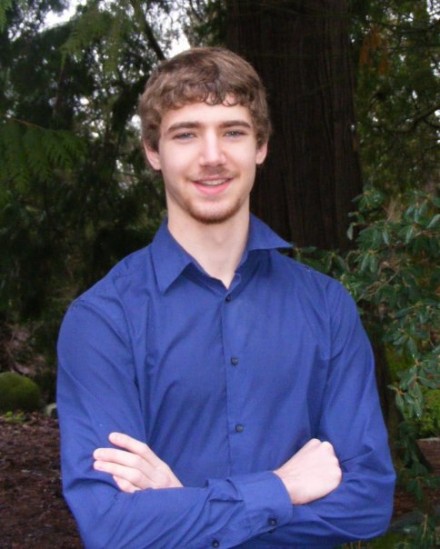
Name: Spencer Rasmussen
Age: 20
Year: 3rd
Faculty and program: Arts – Double major in political science and economics
Years on campus: 3
Past campus involvement: Director, Common Energy UBC; UBC Coordinator, goBEYOND Project; HIV/AIDS Campaign Head, Oxfam UBC
Past non-campus involvement: BC Youth Action Gathering Coordinator, Sierra Youth Coalition; Ethiopia Project Volunteer, Youth Challenge International
1) Why you instead of anyone else?
I have years of experience as a leader in the campus sustainability movement, working with the university – not against it – to get results. During this time, I have managed a funding relationship with the Sustainability Office, partnered with staff to engage students in the development of the Climate Action Plan, and helped bring 20 new water fountains to campus. As a student senator, a representative on the highest academic governing body at UBC, I will stand for sustainability, accountability and effectiveness.
2) What committees will you serve on? Why?
I plan to serve on the Curriculum and Academic Policy committees as they are the most aligned with my top priority (see below). Curriculum is charged with approving the creation, removal or change of courses and degrees, and I will be a strong advocate for innovative, sustainability-focused courses and programs that students want to take. Academic Policy is a wide-ranging committee which advises the Senate on many important matters, allowing me to make progress on other issues I have prioritized.
3) What is your top priority for the year?
My top priority is the implementation of the Sustainability Academic Strategy. If put into practice, this will bring UBC students
- innovative new courses,
- a system for rewarding instructors for quality sustainability teaching,
- and a minor in sustainability in every undergraduate program among other benefits.
I will work constructively with the university to implement this strategy and ensure that UBC delivers.
Name: AJ Hajir Hajian
Age: 26
Year: 3
Faculty and program: Science, Computer Science + Economics
Years on campus: 3
Past campus involvement:
UBC Technical Career Fair Co-organizer (for 2 years)
Associate VP External in Computer Science Student Society (for 2 years)
Image Day MUG Leader
International Peer Program Senior Leader
Conference for Learning and Academic Student Success Mentor
Career Services Focus Group
Broad-based Admission Focus Group
Past non-campus involvement:
2003 disastrous Bam earthquake
Vancouver 2010 Winter Games
2009 World Police Fire Games BC
1) Why you instead of anyone else?
I have a belief that no one person is better than any one else unless a strong commitment, enthusiasm and passion is involved. For the past year, I have seen that passion and commitment to “our UBC” in myself and now I am using this opportunity to step up.
2) What committees will you serve on? Why?
Admissions: Following my involvement in the admission’s focus groups, I have a strong belief that each individual is not fully represented with solely a transcript and as our goal should be to attract the best and the brightest of the world, then we should consider looking outside the box as well. However, I should still clarify that it needs a careful study to reach it’s optimal solution.
Teaching and Learning: As it is by far where students want to have their voice to be heard and how it would be best to train all these bright minds.
3) What is your top priority for the year?
Bringing the voice of students to the Senate is my highest priority; after all our place of mind needs a little insight from each and all of its members. To that extend, exam hardship, access to teaching evaluation reports, over-enrolment and housing is what the majority of students that I have surveyed want to be improved or worked on.
Name: Blake Frederick
Age: 23
Year: 4
Faculty and program: Arts, Philosophy
Years on campus: 5
Past campus involvement: AMS AVP Academic, AMS AVP External, Senate, AMS President
Past non-campus involvement:
1) Why you instead of anyone else?
I believe that my extensive knowledge of the Senate, ability and experience in critically assessing the strengths and weaknesses of teaching and learning at UBC, and insightful, yet realistic ideas will allow me to effectively lobby for students’ academic concerns.
2) What committees will you serve on? Why?
Academic Building Needs Committee – I would like to work with this committee to increase student study space on campus.
Curriculum Committee – I would like to work with this committee to give students more flexibility in their ability to take courses outside of their discipline.
3) What is your top priority for the year?
My top priority is to increase the visibility of Senate in the student body. Specifically, I will:
* Work with the AMS to advertise the occurrence of all Senate meetings.
* Hold weekly public office hours.
* Organize student feedback and focus group sessions.
* Maintain a website to collect student input on academic issues.
Name: Gary Tse
Age: 18
Year: 1
Faculty and program: Science, CSP
Years on campus: 1/2
Past campus involvement: SUS First Year Committee, CSP Council
Past non-campus involvement: Inner-city school tutoring, Annual Club
1) Why you instead of anyone else?
Although I am indeed a first year, I hope that by entering in my first year, I can expand my knowledge about issues at UBC and become an active member of the student government in the years to come. I acknowledge that I am less experienced then some of the other candidates, but I believe that this disparity will empower me to work even harder for the student population at UBC. I am ready to take on the challenge, learn as much as I can, and serve students to the best of my ability.
2) What committees will you serve on? Why?
I wish to be a part of the Teaching and Learning Committee, because UBC is a truly wonderful place to become educated and there can always be improvements made to teaching and learning. I hope to implement ways to increase student interest in learning by finding out what works and doesn’t work in terms of teaching format and style. Learning is an essential part to life at UBC, and is a topic I want to explore and enhance.
3) What is your top priority for the year?
My top priority for the year would be to help students on campus become more aware of the issues brought up during Senate which, ultimately may have an effect on their learning experience at UBC. In doing so, students have a better understanding of the matters at hand and can develop their own voice and opinions regarding them. Only then can students be more accurately represented by their elected Senators and have their ideas vocalized.

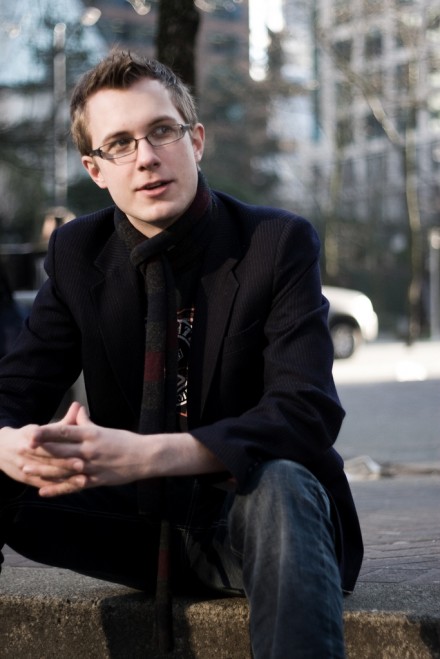
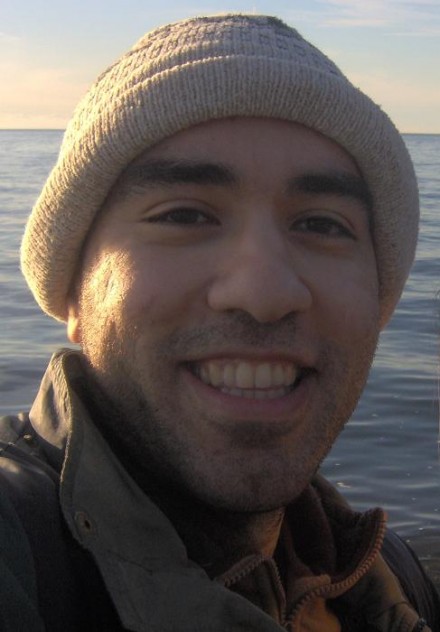
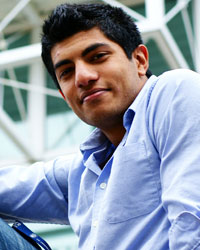

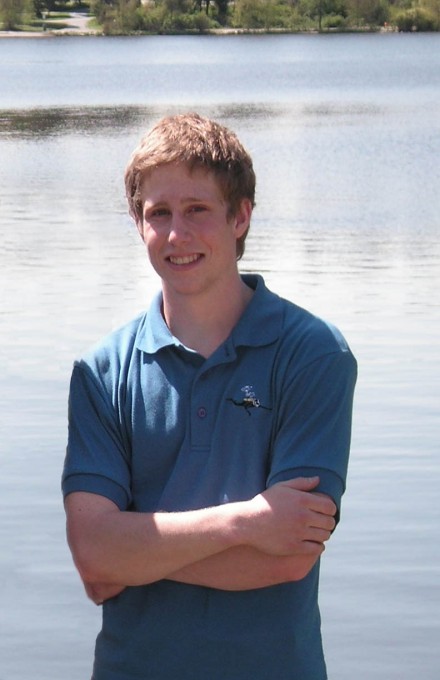
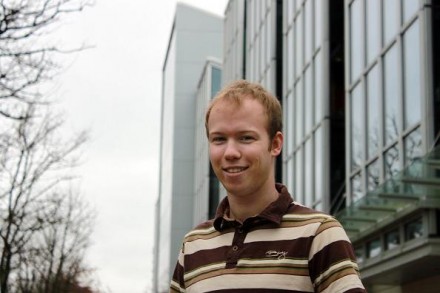
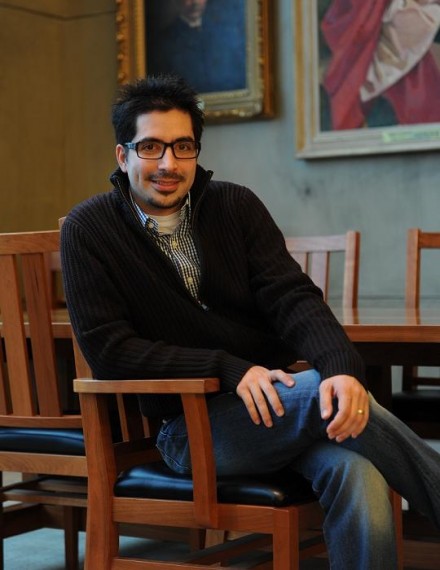





Discussion
Comments are disallowed for this post.
Comments are closed.